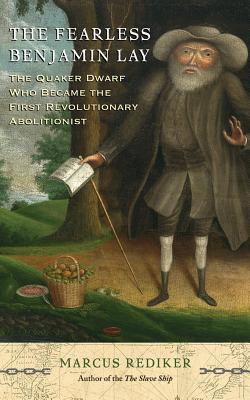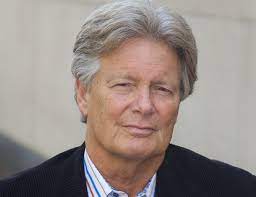

 Brilliance Audio
Brilliance Audio
The Fearless Benjamin Lay: The Quaker Dwarf Who Became the First Revolutionary Abolitionist


Key Metrics
- Marcus Rediker
- Brilliance Audio
- Audio
- 9781536672350
- 5.4 X 6.5 X 0.7 inches
- 0.45 pounds
- History > United States - Revolutionary Period (1775-1800)
- English
 Secure Transaction
Secure TransactionBook Description
The little-known story of an eighteenth-century Quaker dwarf who fiercely attacked slavery and imagined a new, more humane way of life
In The Fearless Benjamin Lay, renowned historian Marcus Rediker chronicles the transatlantic life and times of a singular man--a Quaker dwarf who demanded the total, unconditional emancipation of all enslaved Africans around the world. Mocked and scorned by his contemporaries, Lay was unflinching in his opposition to slavery, often performing colorful guerrilla theater to shame slave masters, insisting that human bondage violated the fundamental principles of Christianity. He drew on his ideals to create a revolutionary way of life, one that embodied the proclamation no justice, no peace.
Lay was born in 1682 in Essex, England. His philosophies, employments, and places of residence--spanning England, Barbados, Philadelphia, and the open seas--were markedly diverse over the course of his life. He worked as a shepherd, glove maker, sailor, and bookseller. His worldview was an astonishing combination of Quakerism, vegetarianism, animal rights, opposition to the death penalty, and abolitionism.
While in Abington, Philadelphia, Lay lived in a cave-like dwelling surrounded by a library of two hundred books, and it was in this unconventional abode where he penned a fiery and controversial book against bondage, which Benjamin Franklin published in 1738. Always in motion and ever confrontational, Lay maintained throughout his life a steadfast opposition to slavery and a fierce determination to make his fellow Quakers denounce it, which they finally began to do toward the end of his life.
With passion and historical rigor, Rediker situates Lay as a man who fervently embodied the ideals of democracy and equality as he practiced a unique concoction of radicalism nearly three hundred years ago. Rediker resurrects this forceful and prescient visionary, who speaks to us across the ages and whose innovative approach to activism is a gift, transforming how we consider the past and how we might imagine the future.
Author Bio
Marcus Rediker was born in Owensboro, Kentucky, in 1951, to Buford and Faye Rediker, the first of their two sons. His family has roots in the mines and factories of Kentucky, Tennessee, and Virginia; he grew up in Nashville and Richmond. He attended Vanderbilt University, dropped out of school and worked in a factory for three years, and graduated with a B.A. from Virginia Commonwealth University in 1976. He went to the University of Pennsylvania for graduate study, earning an M.A. and Ph.D. in history.
Marcus taught at Georgetown University from 1982 to 1994, lived in Moscow for a year (1984-5), and is currently Distinguished Professor of Atlantic History at the University of Pittsburgh. He has, over the years, been active in a variety of social justice and peace movements, including the worldwide campaign to abolish the death penalty.
He has written, co-written, or edited twelve books, all of them histories “from below”: Between the Devil and the Deep Blue Sea (1987); Who Built America? (with Herbert Gutman, et al., 1989), volume one; The Many-Headed Hydra (2000, with Peter Linebaugh); Villains of All Nations (2004); The Slave Ship (2007); Many Middle Passages (2007); The Amistad Rebellion (2012); Mutiny and Maritime Radicalism in the Age of Revolution (2013); Outlaws of the Atlantic (2014); The Fearless Benjamin Lay (2017); A Global History of Runaways (2019); and Prophet against Slavery (2021, with David Lester and Paul Buhle).
His writings have been translated into Arabic, Chinese, Dutch, French, German, Greek, Hebrew, Italian, Japanese, Korean, Polish, Portuguese, Russian, Spanish, Swedish, and Turkish. His books have won numerous awards, including the George Washington Book Prize, the American Studies Association’s John Hope Franklin Book Prize, the American Historical Association’s James A. Rawley Prize, and the Organization of American Historians’ Merle Curti Award (twice). He has held fellowships from the American Council of Learned Societies, the John Simon Guggenheim Memorial Foundation, the Andrew P. Mellon Foundation, and the National Endowment of the Humanities.
Marcus worked with film-maker Tony Buba to produce a documentary entitled Ghosts of Amistad: In the Footsteps of the Rebels, a chronicle of a trip to Sierra Leone in which he interviewed village elders about local memory of the case and searched for the long-lost ruins of Lomboko, the slave trading factory from which the Amistad Africans were loaded aboard slave ships and sent to the New World. In 2015 the film was given the John E. O’Conner Award by the American Historical Association as the year’s best historical documentary. It has been screened in London, Paris, and Amsterdam and aired multiple times on PBS. You may visit the film’s website and watch the film here.
Marcus is also working with playwright Naomi Wallace to write a stage play entitled “The Return of Benjamin Lay,” which has been workshopped in New York, London, and Paris. He is currently serving as guest curator in the JMW Turner Gallery of Tate Britain in London. His current book project, under contract to Viking-Penguin, is a history of escaping slavery by sea in antebellum Atlantic America.
Source: University of Pittsburgh and marcusrediker.com
Community reviews
Write a ReviewNo Community reviews




